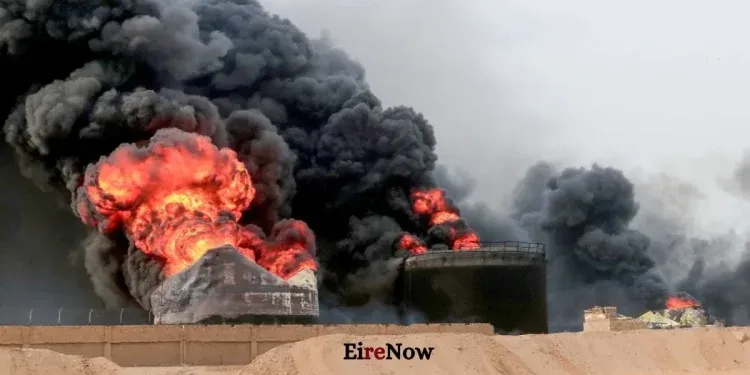SANAA, YEMEN – Israel has conducted retaliatory airstrikes on targets in Yemen’s capital, Sanaa, following a missile attack by the Houthi group on Friday that Israel claims involved the use of cluster munitions.
According to Israeli officials, the strikes targeted a military complex that includes the presidential palace, a fuel depot, and power stations. Houthi officials reported that the strikes resulted in the deaths of four people and left 67 injured.
The Israeli military stated that the Houthi missile attack on Friday marked the first time the Iran-backed group had used cluster munitions against Israel in the current conflict. A video released by the Houthis after the attack appeared to show bombs dispersing mid-air. One of the bomblets reportedly landed in the yard of a home in the central Israeli town of Ginaton, causing minor damage.
The Israel Defense Forces (IDF) is currently investigating why its defense systems failed to intercept the missile before the bomblets were dispersed. Cluster munitions, which are a method of scattering numerous smaller explosives over a wide area, are banned by more than 100 countries. A significant number of the bomblets, or “duds,” fail to explode on impact and can pose a danger to civilians for years afterward.
The retaliatory operation was overseen by Israeli Prime Minister Benjamin Netanyahu and Defence Minister Israel Katz. A photograph released by the Israeli government showed the prime minister at a command center in Tel Aviv.
“Anyone who attacks us – we attack them. Anyone planning to attack us – we attack them,” Prime Minister Netanyahu said in a statement. “I believe the entire region is learning the power and determination of the State of Israel.”







